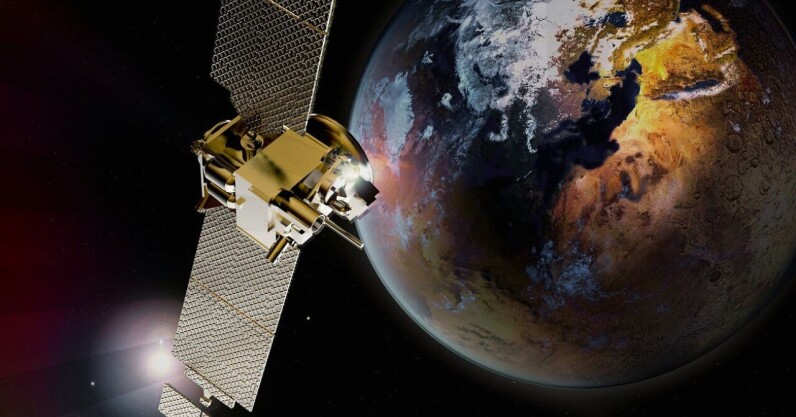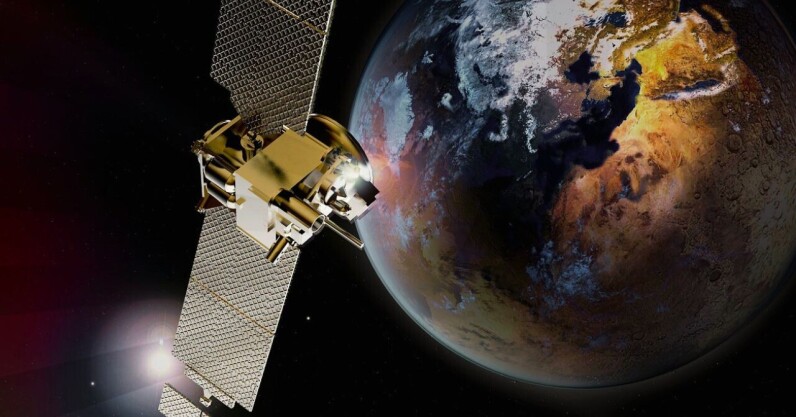Key Points
- Ubotica partners with Fugro and DTACT to develop a maritime security platform
- The platform combines real-time data from sea, air, and space
- Fugro’s drones and underwater vehicles collect geodata
- Ubotica’s AI-powered satellites track vessels and identify anomalies
- DTACT integrates data streams into a maritime cybersecurity tool
- The platform aims to secure critical underwater infrastructure
- Maritime surveillance demand has increased due to pipeline sabotage and Russian aggression
- The platform will initially serve governmental organisations in the North Sea and Baltic regions

A high-resolution image showing a satellite orbiting Earth, with the satellite featuring large solar panels and communication equipment. The Earth is prominently displayed in the background, showing continental landmasses, cloud formations, and the atmospheric glow. The satellite appears to be a modern communications or observation satellite with gold-colored components and reflective solar arrays. The image has dramatic lighting with the sun visible in the corner creating a lens flare effect.
Maritime Security Partnership
Ubotica, a specialist in edge AI for satellites, has formed a partnership with Fugro, a provider of offshore surveying and geodata services, and DTACT, a defence-focused cybersecurity firm. This collaboration aims to create an intelligence platform designed to enhance maritime security across European waters.
The platform will combine real-time data from sea, air, and space to generate a dynamic picture of maritime activity. Fugro’s drones, underwater vehicles, and uncrewed surface vessels will collect geodata from the oceans, while Ubotica’s AI-powered satellites will track vessels and identify anomalies in near-real time. DTACT will integrate these data streams into a maritime cybersecurity tool.
This “space-to-seabed surveillance” has the potential to transform situational awareness at sea, according to Fintan Buckley, CEO of Ubotica. The integrated approach will provide enhanced maritime awareness and a near real-time response capability, securing critical underwater infrastructure.
The demand for maritime surveillance has increased since the sabotage of the Nord Stream pipeline, which highlighted the vulnerability of underwater assets to covert attacks. European nations in NATO are also strengthening their defences at sea due to concerns over Russian aggression.
The platform will initially focus on serving governmental organisations in the North Sea and Baltic regions, which are strategically important and relatively close to Russia. Several new systems are currently undergoing trials in the region, including autonomous surface drones and fibre-optic sensors.
Source: thenextweb.com
